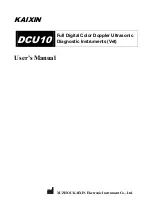
56
Pre-Travel Information
Vehicle Labels
Decals and data plates used throughout the RV aid in its safe
and efficient operation; others give service instructions. Read all
decals, data and instruction plates before operating your RV. If
any decal, data or instruction plate is painted over, damaged or
removed, it should be replaced.
Weight Ratings & Definitions
It is essential to understand and stay within the weight ratings
of your RV and tow vehicle. Learning these definitions is the first
step in safely managing your RV's weight and balance. Vehicle
and trailer weight numbers fall into two categories:
•
Ratings
are maximum limits, NEVER to be exceeded.
These limits are established by Grand Design RV and our
component manufacturers in the design of the vehicle.
•
Weight
and
Load
are often used interchangeably. Weight
is measured by putting an RV, tow vehicle or its components
on a scale. Vehicles and cargo have
weight
, which impart
loads
to tires, axles, and hitches.
GAWR (Gross Axle Weight Rating)
- GAWR is the maximum
weight each axle is designed to carry.
GVWR (Gross Vehicle Weight Rating)
- GVWR (also called
Maximum Loaded Trailer Weight
) includes the GAWR
plus
the
hitch weight. It is the maximum allowed weight for a fully loaded
RV or tow vehicle.
Gross (Trailer/Vehicle) Weight
- Gross Weight is the total
actual weight of your RV
plus
cargo, as measured on a scale.
UVW (Unloaded Vehicle Weight)
- UVW is the weight of the RV
as built at the factory. The UVW includes the empty LP bottles
but does NOT include cargo, water, LP gas, or dealer-installed
accessories.
Hitch Weight
(or
Tongue Load / Tongue Weight
) - Hitch weight
is the actual weight pressing down on the hitch ball by the RV.
CCC (Cargo Carrying Capacity)
• United States: CCC is equal to GVWR
minus
the following:
UVW and LP gas weight.
Water is considered cargo weight.
• Canada: CCC is equal to GVWR
minus
the following:
UVW, LP gas weight, and full fresh (or
potable
) water weight
(
including the water heater
).
For additional definitions, See
Page188
, Glossary.
Exceeding a rating may
result in unsafe conditions,
potential damage, may void
a warranty, may complicate
an insurance claim, and in
some cases, may violate a
law.
The actual total weight of
the vehicle, all options,
liquids, your personal
cargo, and the hitch weight
is important to know so
that you do not exceed
the Gross Vehicle Weight
Rating (GVWR) of the
recreational vehicle. The
volume of space available
for storage may exceed the
amount of available cargo
capacity. Large storage
compartments have been
designed to accommodate
normal camping items,
which are bulky, but not
necessarily heavy.
WARNING
WARNING
Summary of Contents for Solitude 2017
Page 1: ......
Page 2: ......
Page 4: ...This page is intentionally blank ...
Page 6: ...This page is intentionally blank ...
Page 34: ...32 This page is intentionally blank ...
Page 81: ...79 This page is intentionally blank ...
Page 116: ...114 This page is intentionally blank ...
Page 117: ...115 Nautilus P1 Manual Nautilus P1 Manual ...
Page 118: ...116 Nautilus P1 Manual ...
Page 119: ...117 Nautilus P1 Manual ...
Page 120: ...118 Nautilus P1 Manual ...
Page 121: ...119 Nautilus P1 Manual ...
Page 122: ...120 Nautilus P1 Manual ...
Page 123: ...121 Nautilus P1 Manual ...
Page 124: ...122 Nautilus P1 Manual ...
Page 125: ...123 Nautilus P1 Manual ...
Page 126: ...124 Nautilus P1 Manual ...
Page 127: ...125 Nautilus P1 Manual ...
Page 128: ...126 Nautilus P1 Manual ...
Page 129: ...127 Nautilus P1 Manual ...
Page 130: ...128 Nautilus P1 Manual ...
Page 131: ...129 Nautilus P1 Manual ...
Page 132: ...130 This page is intentionally blank ...
Page 151: ...149 Heating Cooling ...
Page 202: ...200 Customer Notes ...
Page 203: ......
















































